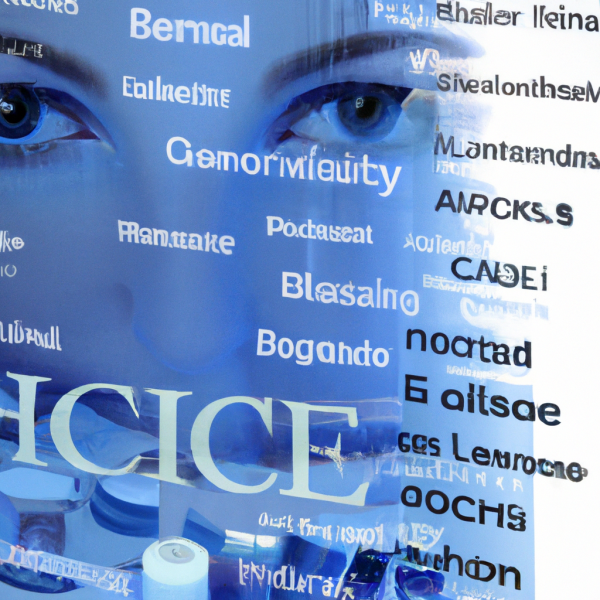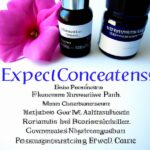Your Guide to Understanding Cosmetic Clinical Studies
What is a Cosmetic Clinical Study?
A cosmetic clinical study is a research study that is specifically designed to evaluate the safety and effectiveness of a cosmetic product. It includes studies of the safety, efficacy, and usability of products, as well as the use of human subjects. Cosmetic clinical studies may also involve animal testing, depending on the nature of the product being tested. The ultimate goal of any cosmetic clinical study is to ensure that products meet the necessary health and safety standards set by the industry.
Types of Cosmetic Clinical Studies
Cosmetic clinical studies can be separated into three major categories: non-clinical, clinical and post-market clinical studies.
Non-Clinical Studies
Non-clinical studies involve laboratory-based testing of a product’s ingredients and potential effects. These studies are designed to evaluate safety and efficacy of a product before it enters into the market. Non-clinical studies may also include studies of formulation, stability, testing of ingredients and end-point products.
Clinical Studies
Clinical studies involve the use of human volunteers and/or animals. These studies are used to assess the safety and efficacy of a product’s ingredients and overall safety of the product. These studies are also used to verify the performance of a product, identify potential adverse effects, and assess the product’s effectiveness.
Post-Market Clinical Studies
Post-market clinical studies are designed to evaluate the long-term safety and efficacy of a product that is already on the market. They also provide information on the product’s performance in real-life settings.
How are Cosmetic Clinical Studies Conducted?
Cosmetic clinical studies involve the use of rigorous scientific methods and involve strict protocols. Depending on the type of study, these studies may involve various types of experiments, observations, surveys and interviews. The following is a brief overview of the different approaches used in cosmetic clinical studies.
In Vitro Research
In vitro research involves the use of laboratory methods to study biological components such as cells, tissues and microbes. These experiments are used to assess the safety and efficacy of a product’s ingredients.
In Vivo Studies
In vivo studies involve the use of live organisms such as human volunteers and/or animals. These studies are used to evaluate the safety and efficacy of a product’s ingredients and its overall safety.
Usability Studies
Usability studies involve surveys, interviews and observations to assess a product’s usability. These studies are designed to understand how a product is experienced by consumers and how it compares to other products on the market.
Benefits of Cosmetic Clinical Studies
Cosmetic clinical studies provide several key benefits to both consumers and industry professionals.
For Consumers
-
- Cosmetic clinical studies ensure the safety of products on the market
-
- They can provide assurance that a product works as expected
-
- These studies can improve product visibility in the market
-
- They can provide information on product efficacy and usability
For Industry Professionals
-
- Cosmetic clinical studies provide valuable market data
-
- They can identify areas of improvement for a product
-
- They can highlight potential risks associated with a product
-
- These studies can help meet regulatory requirements
Frequently Asked Questions
Who Conducts Cosmetic Clinical Studies?
Cosmetic clinical studies are typically conducted by a team of scientists, researchers and industry professionals. This team may include physicians, toxicologists, pharmacists, biologists, chemists, and medical professionals.
How are Participants Selected for Cosmetic Clinical Studies?
Participants for cosmetic clinical studies are typically chosen based on several factors, including age, gender, skin type, and health. The selection process also depends on the type of study that is being conducted.
How Long Do Cosmetic Clinical Studies Last?
The duration of cosmetic clinical studies varies based on the type of study that is being conducted. Non-clinical and post-market studies generally have shorter durations; however, clinical studies often have longer durations and may last for several months or even years.
Are Cosmetic Clinical Studies Regulated?
Yes, cosmetic clinical studies are highly regulated. Guidelines from the International Conference on Harmonization of Technical Requirements for Registration of Pharmaceuticals for Human Use (ICH) and the US Food and Drug Administration (FDA) must be adhered to in order to ensure safety and efficacy.
Conclusion
Cosmetic clinical studies are essential in ensuring the safety and efficacy of cosmetic products. These studies involve the use of rigorous scientific methods and involve a number of different approaches. The ultimate goal of any cosmetic clinical research is to ensure that products meet the necessary health and safety standards set by the industry.
Unlock the Benefits of Cosmetic Clinical Studies for Informed Decision Making
Cosmetic clinical studies play a crucial role in providing valuable insights into the safety, efficacy, and usability of cosmetic products. By conducting rigorous research and adhering to strict protocols, these studies contribute to the continuous improvement of the industry and the assurance of consumer satisfaction. In this guide, we will delve deeper into the world of cosmetic clinical studies, explore the various types of studies conducted, and shed light on the benefits they offer to both consumers and industry professionals.
Understanding Cosmetic Clinical Studies
Cosmetic clinical studies are research endeavors designed specifically to evaluate the safety and effectiveness of cosmetic products. These studies encompass a wide range of assessments, including the use of human subjects and, in some cases, animal testing. The primary objective of cosmetic clinical studies is to ensure that products meet the necessary health and safety standards set by the industry.
Types of Cosmetic Clinical Studies
Cosmetic clinical studies can be broadly classified into three major categories: non-clinical studies, clinical studies, and post-market clinical studies. Each category serves a unique purpose in assessing different aspects of cosmetic products.
Non-Clinical Studies
Non-clinical studies involve laboratory-based testing to evaluate a product’s ingredients and potential effects before it enters the market. These studies focus on assessing safety and efficacy, as well as testing ingredients and end-point products for formulation and stability.
Clinical Studies
Clinical studies, on the other hand, involve the use of human volunteers and/or animals to assess the safety, efficacy, and overall performance of a product. These studies are vital in identifying potential adverse effects, verifying a product’s performance, and determining its effectiveness.
Post-Market Clinical Studies
Post-market clinical studies are conducted to evaluate the long-term safety and efficacy of products already on the market. These studies provide valuable information on a product’s real-life performance and contribute to ongoing improvements and regulatory compliance.
Methods Used in Cosmetic Clinical Studies
Cosmetic clinical studies employ various scientific methods to gather data and draw meaningful conclusions. Let’s explore some of the approaches commonly utilized in these studies:
In Vitro Research
In vitro research involves laboratory-based experiments using biological components such as cells, tissues, and microbes. This method helps assess the safety and efficacy of a product’s ingredients before progressing to human or animal testing.
In Vivo Studies
In vivo studies utilize live organisms, including human volunteers and/or animals, to evaluate the safety, efficacy, and overall performance of a product. By closely observing the effects on living subjects, researchers gain valuable insights into a product’s real-world impact.
Usability Studies
Usability studies employ surveys, interviews, and observations to assess a product’s usability from the consumer’s perspective. These studies provide valuable feedback on how a product is experienced and compare its performance to other products on the market.
Benefits of Cosmetic Clinical Studies
Cosmetic clinical studies offer a host of benefits for both consumers and industry professionals. Let’s explore these advantages in detail:
For Consumers
– **Ensuring Safety**: Cosmetic clinical studies provide rigorous safety assessments, ensuring that products on the market meet stringent standards.
– **Assurance of Efficacy**: These studies offer consumers confidence that a product performs as expected, delivering the desired results.
– **Improved Product Visibility**: Cosmetic clinical studies contribute to enhanced product visibility by generating reliable data and fostering consumer trust.
– **Insights into Efficacy and Usability**: Consumers gain valuable information about a product’s effectiveness and usability, enabling them to make
informed purchasing decisions.
For Industry Professionals
– **Valuable Market Data**: Cosmetic clinical studies provide industry professionals with vital market data, facilitating market analysis and informed decision making.
– **Identifying Areas of Improvement**: These studies identify potential areas for product improvement, enabling companies to refine their offerings and meet consumer needs effectively.
– **Highlighting Potential Risks**: By assessing product safety comprehensively, cosmetic clinical studies help identify and mitigate potential risks associated with a product.
– **Meeting Regulatory Requirements**: Compliance with regulatory guidelines and standards is crucial for industry professionals, and cosmetic clinical studies play a pivotal role in meeting these requirements effectively.
Frequently Asked Questions
Who Conducts Cosmetic Clinical Studies?
Cosmetic clinical studies are typically conducted by a team of highly skilled professionals, including scientists, researchers, physicians, toxicologists, pharmacists, biologists, chemists, and medical experts.
How are Participants Selected for Cosmetic Clinical Studies?
Participant selection for cosmetic clinical studies is based on several factors such as age, gender, skin type, and overall health. The selection process varies depending on the specific goals and requirements of the study.
How Long Do Cosmetic Clinical Studies Last?
The duration of cosmetic clinical studies varies depending on the type of study being conducted. Non-clinical and post-market studies generally have shorter durations, while clinical studies often span several months or even years.
Are Cosmetic Clinical Studies Regulated?
Yes, cosmetic clinical studies are subject to strict regulations. International guidelines, such as those established by the International Conference on Harmonization of Technical Requirements for Registration of Pharmaceuticals for Human Use (ICH) and the US Food and Drug Administration (FDA), must be followed to ensure safety and efficacy.
Conclusion
Cosmetic clinical studies are indispensable in guaranteeing the safety, efficacy, and overall quality of cosmetic products. By conducting comprehensive research, adhering to rigorous protocols, and utilizing a range of scientific approaches, these studies provide vital insights that drive industry innovation and consumer satisfaction. By understanding the value of cosmetic clinical studies, consumers can make informed decisions and industry professionals can continuously enhance their products to meet the evolving needs of the market.






